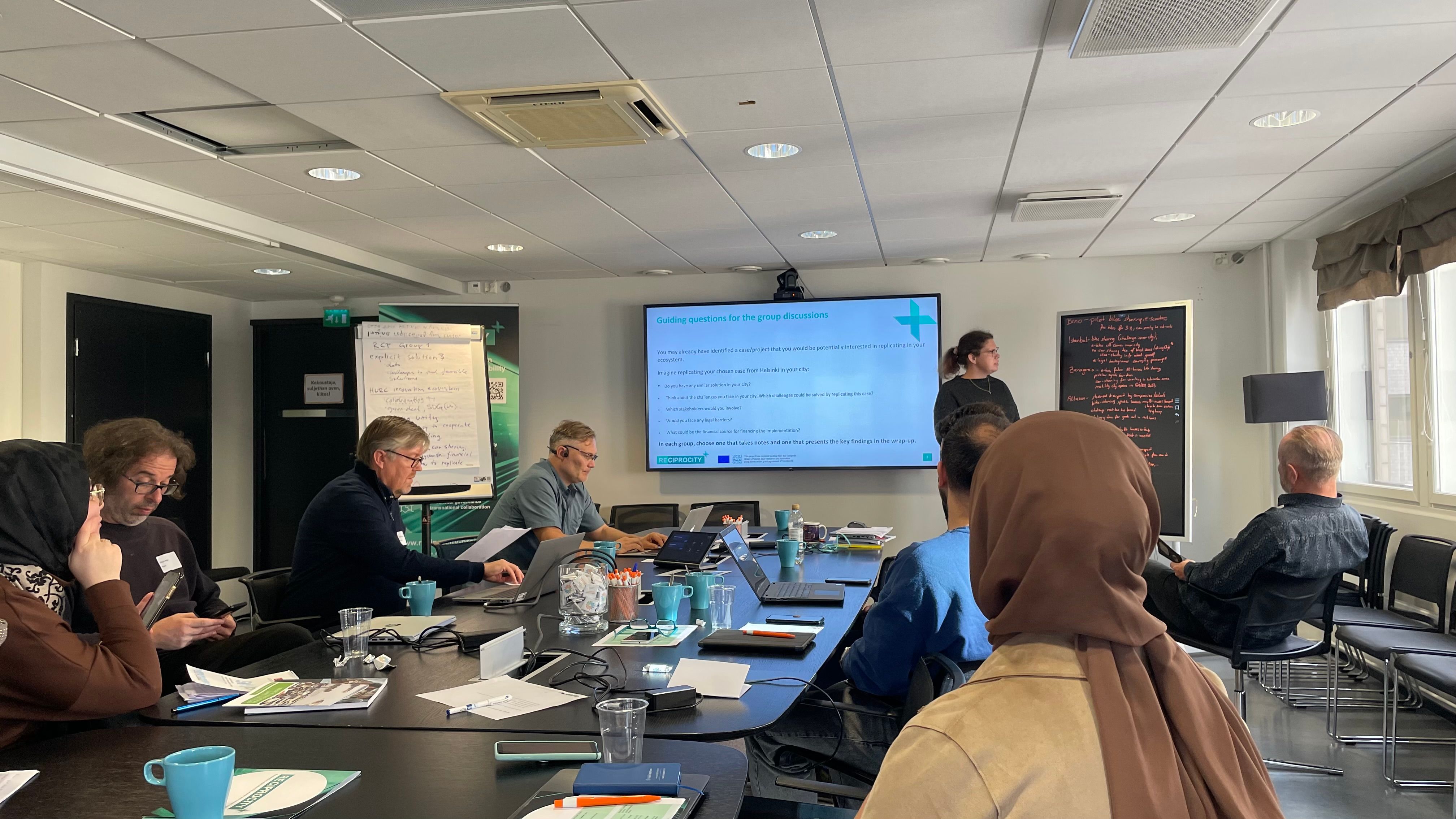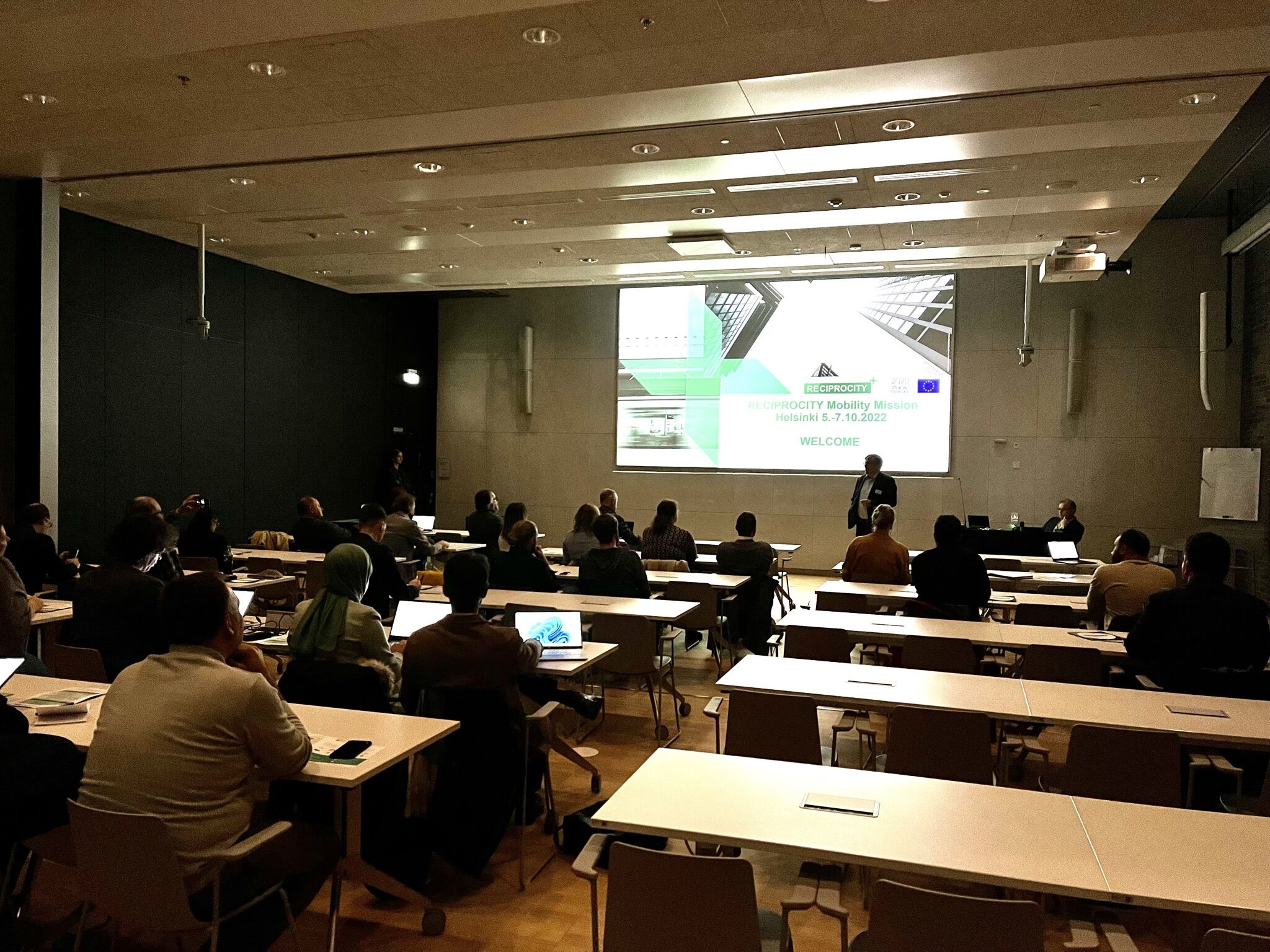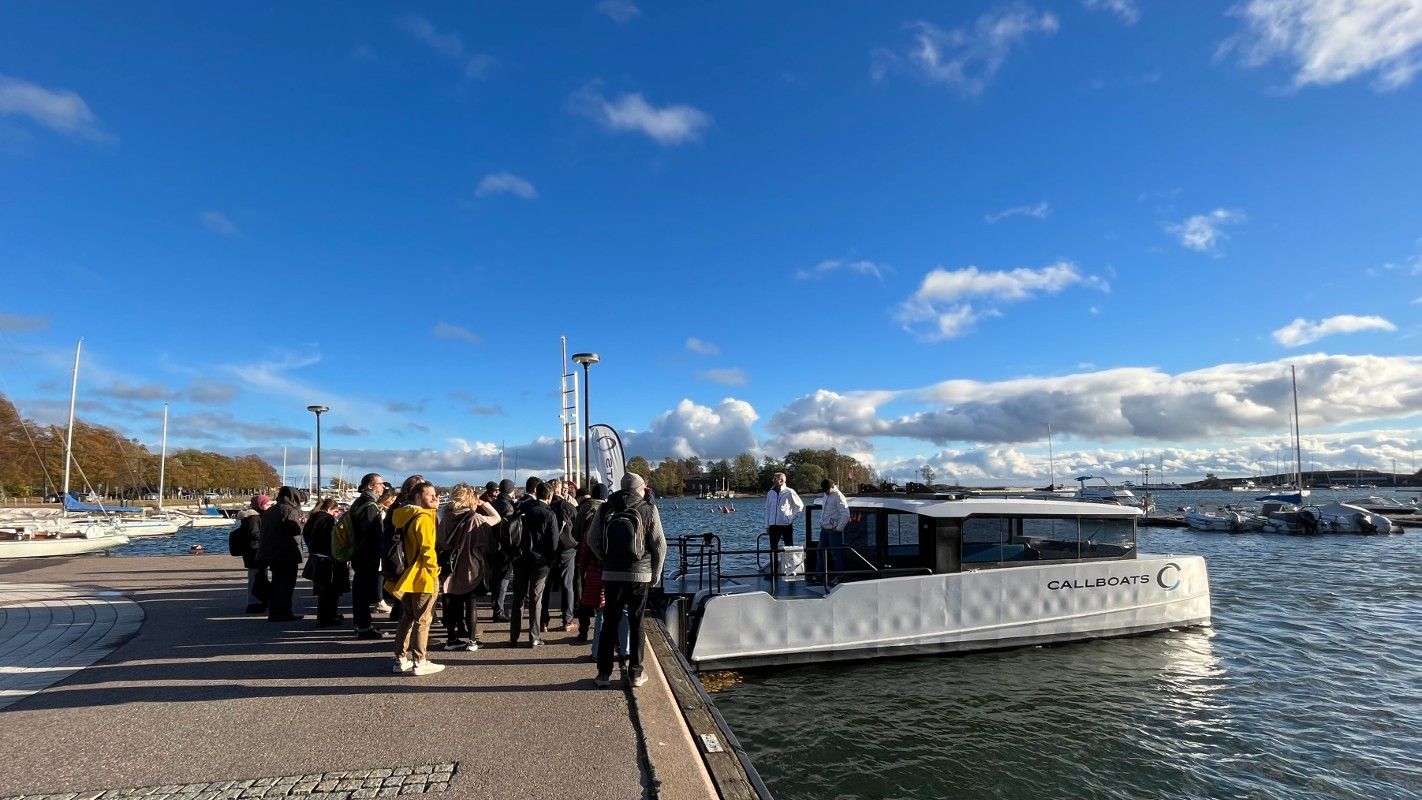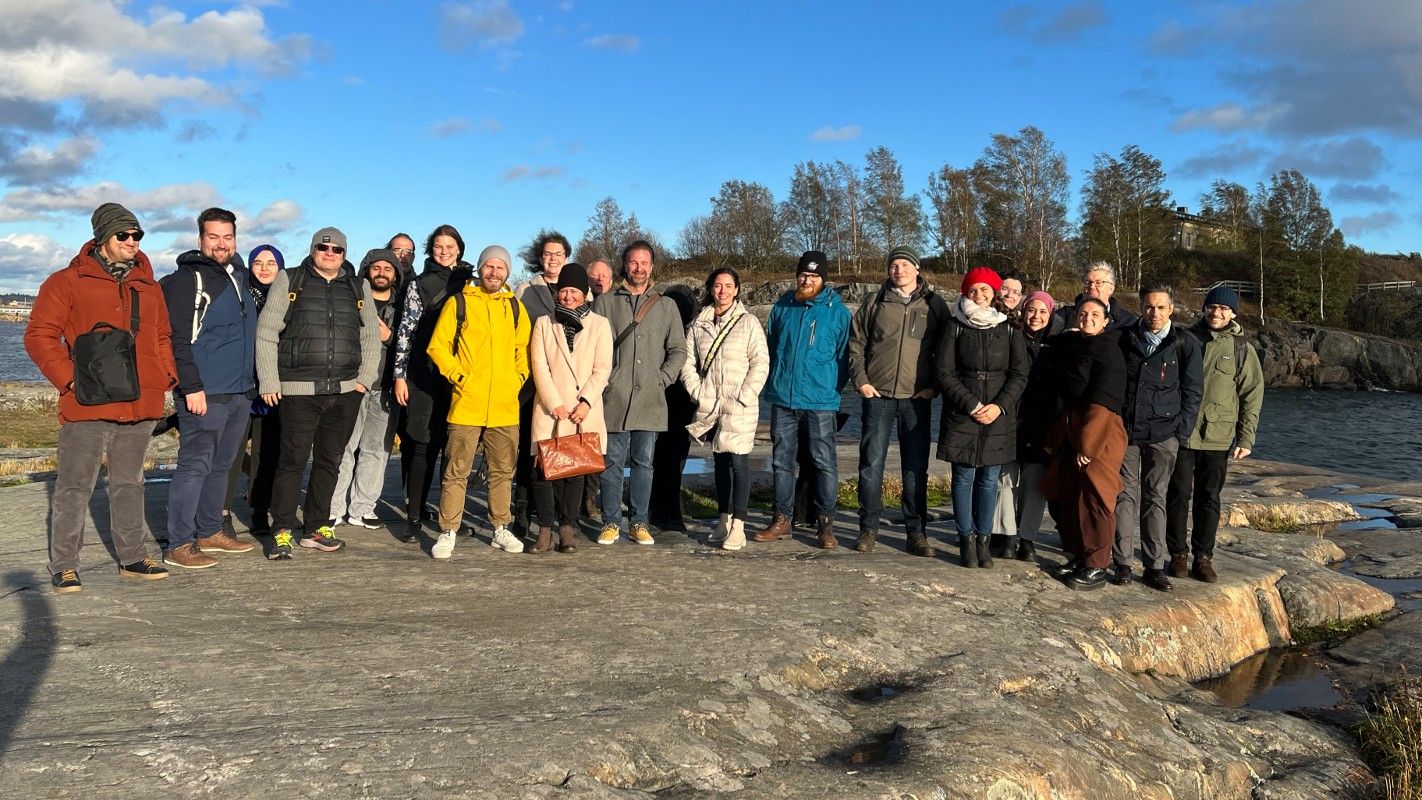RECIPROCITY mission to Helsinki: discovering Finland's innovative mobility ecosystem
October 27, 2022
The European project RECIPROCITY (of which NextMove is a partner) organized the second mobility mission, hosted by the Helsinki-Uusimaa Regional Council (HURC), in Finland, from October 5 to 7. Over forty participants from all over Europe came together to discover Finnish solutions and projects in smart, sustainable mobility that could be replicated in their home cities.
The three days spent in Helsinki were diverse and rich in information. On the first day, participants gathered in the new Urban Environment Building of the City of Helsinki. HURC's Head of Transport Planning, gave a brief overview of regional planning in the Helsinki-Uusimaa region - Finland's largest region with over 1.7 million inhabitants, around a third of the country's population. The region is considered dynamic, although its size and large population mean that it faces many challenges in terms of transportation.
The head of the city of Helsinki's resource planning unit also gave an overview of the smooth operation of the city of Helsinki transport system. The City of Helsinki and the surrounding Helsinki-Uusimaa region have set themselves the goal of becoming carbon-neutral by 2030: investments are being made in the extension of streetcar lines and bicycle paths. The City of Helsinki's project manager then presented a review of Helsinki's ITS development program, which focuses on the collection and use of traffic data, digital transport management, and Helsinki's role in new services and transport automation.
In the afternoon, participants moved on to Aalto University's Open Innovation House in Espoo, where the Assistant Professor of Spatial Planning and Transportation Engineering, introduced participants to intelligent mobility solutions in the Aalto University campus area. This was followed by presentations from five Aalto University spinoffs, GIM Robotics, PARKZIA, AIVisionEye, Conveqs and Maptionnaire.
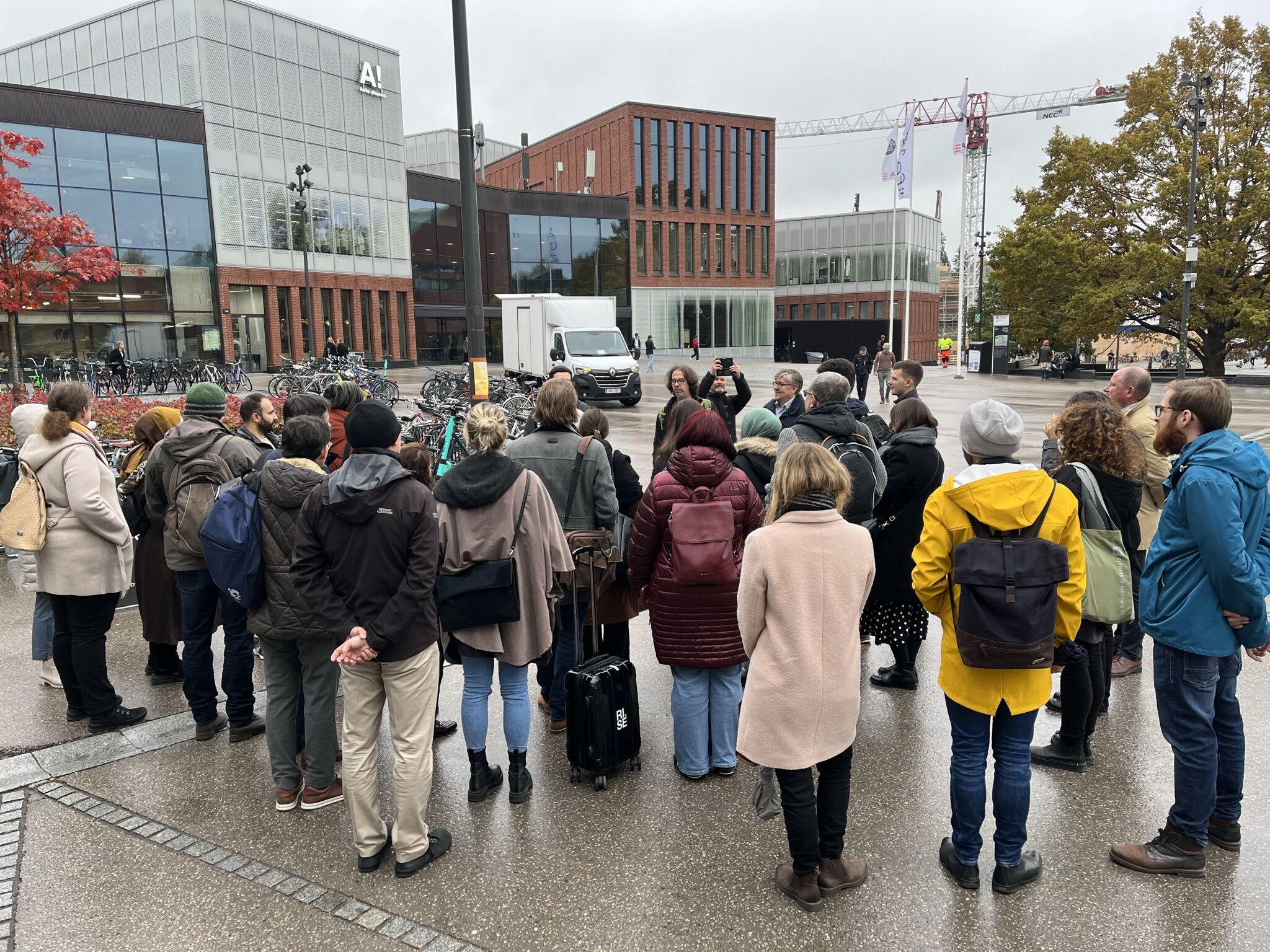
On the second day, participants gathered at the former Maria Hospital, which a few years ago was transformed into a leading start-up campus in the Nordic countries. An overview of smart mobility solutions was given by the senior smart mobility expert from Forum Virium Helsinki, the City of Helsinki's innovation company that facilitates the creation of start-ups and pilots new mobility services and technologies. A representative from the City of Helsinki also presented the Mobility Lab Helsinki, a testbed for smart mobility innovations, with an overview of current projects.
Representatives from the Ministry of Transport and Communications, Forum Virium Helsinki and the Metropolia University of Applied Sciences then presented the city's open data platform, the deployment of autonomous vehicles on Helsinki streets (including delivery robots, sweepers and drones), the digital twinning project for mobility, and the Metropolia Innovation Center's smart mobility project in rural areas. At the end of the afternoon, participants went on a short site visit to the waterfront to see the Callboats - electric boats on demand - in operation.
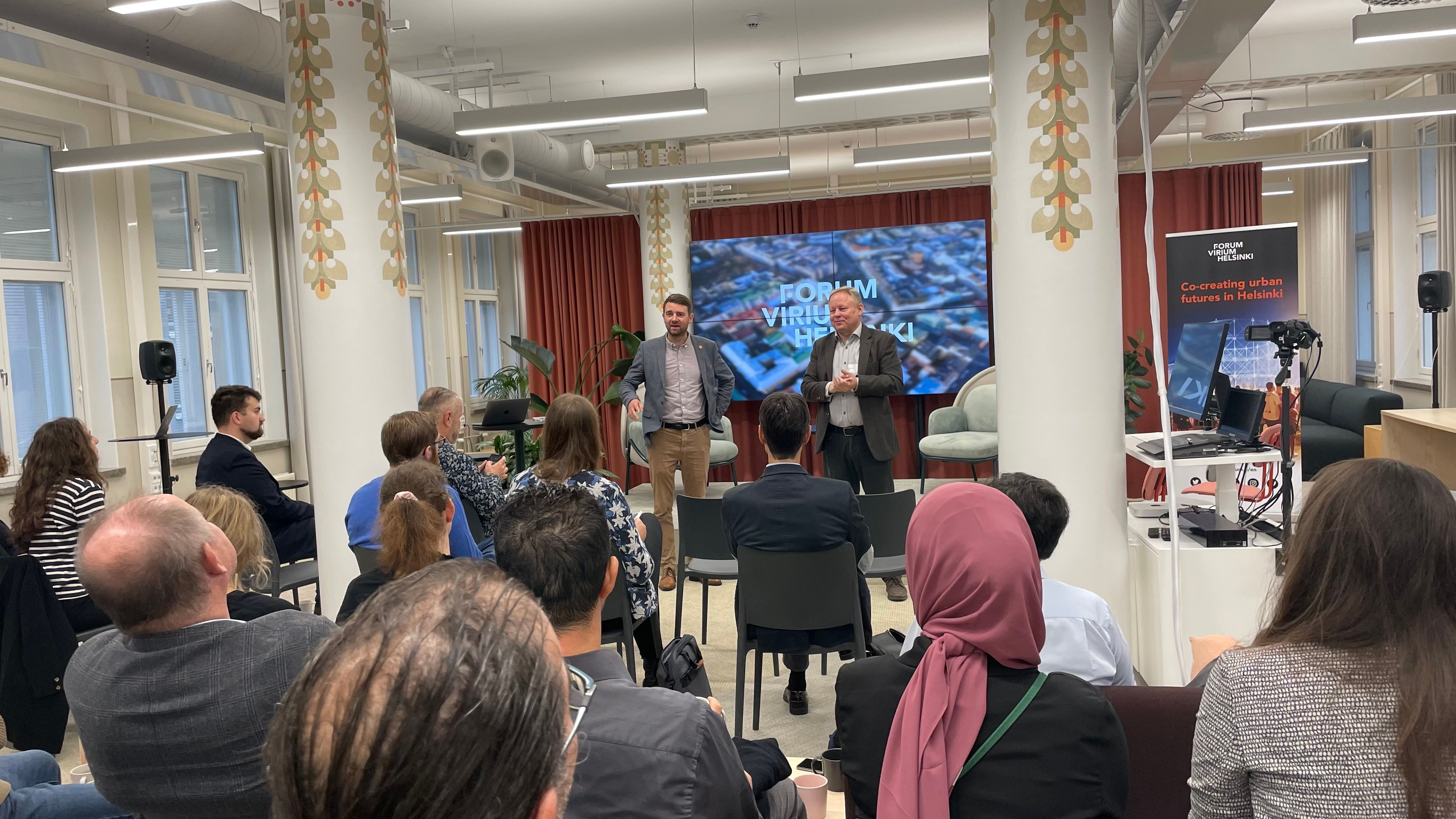
On the last day, participants gathered at the offices of the Helsinki-Uusimaa regional council, where they were given a short presentation of the Helsinki Smart Region platform and the regional council's tasks, which include development, regional transport and spatial planning, as well as the promotion of local and regional interests at national and international level. The company CoReorient then presented the P2P platform for sharing or exchanging consumer goods, tasks and services. The final session concluded with a workshop (Capacity Building Workshop) in which participants exchanged views on the Helsinki case study and solutions that could be replicated in their own cities.
The next mission RECIPROCITY is scheduled for the end of March 2023 and will target the mobility ecosystem of Linz, Austria. Keep up to date through the project website or by contacting the NextMove team directly to be part of it!
